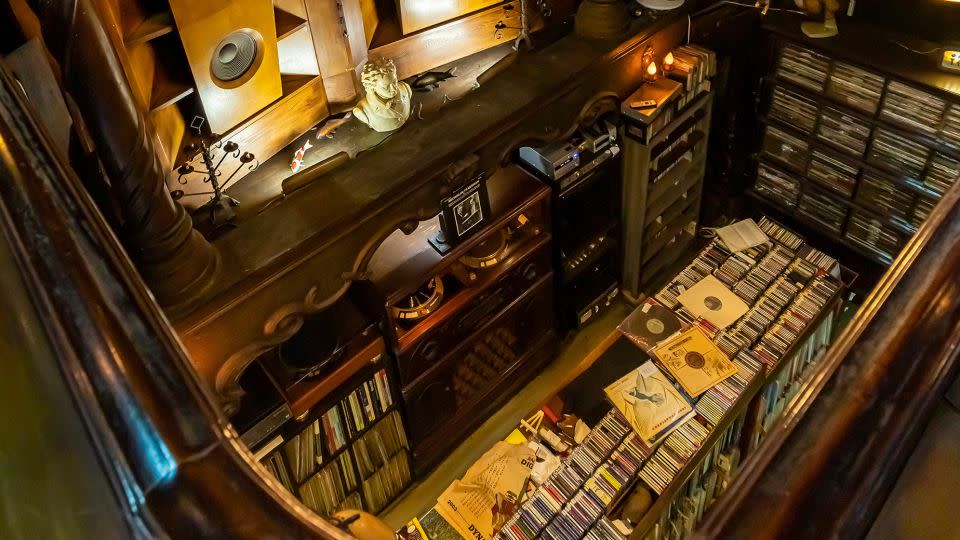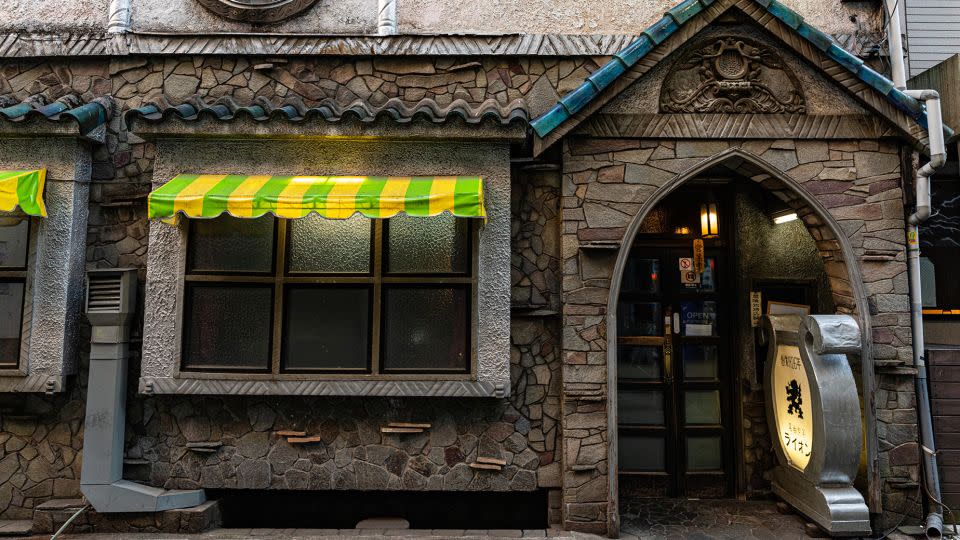Nearly a century old, this ‘masterpiece cafe’ in Tokyo discourages socializing and forbids mobile phones
Walking into the Lion Cafe, in Tokyo’s Shibuya district, the first thing one notices is the seating. All chairs face one direction, towards two gigantic speakers on the wall, the stars of this 98-year-old institution.
It’s one of the city’s few remaining meikyoku kissa, or masterpiece cafés.
“Meikyoku kissa is a place that plays classical music, where customers can listen to music, have a drink and relax,” says Naoya Yamadera, the current manager of the Lion Cafe.
His father, Yanosuke Yamadera, built the original in 1926. It burned down during World War II air raids and was rebuilt and expanded in the 1950s, the decor inspired by its original European Baroque style.
Beyond its stone-walled fa?ade, the cafe’s interior is dimly lit, featuring dark wood and carved reliefs.
Unlike most cafes, socializing here is discouraged. Talking on mobile phones is forbidden.

When asked to explain why all the seats only face one way, Yamadera says it allows them to offer a more realistic concert experience, as though they’re facing “an actual orchestra.”
“It was designed to immerse you in the image of listening to an orchestral performance,” he says.
The sound system was custom-made for the space in 1950, embedded into the two-story-high wall at the front of the café. Rows of vinyl records and CDs fill the shelves and racks beneath the speakers – they’ve got more than 5,000 of each in total, according to Yamadera.
Customers can request certain classical pieces from the store’s collection – unless they’re in the middle of a set playlist.
A new fan base emerges
Yamadera says he spent his much of childhood in the café.
He joined the staff when he was in junior high school, starting as a dishwasher.
Throughout the years the café has changed very little, which Yamadera thinks is its biggest charm.
“In the beginning, the music equipment was expensive. We were doing it at a time when there were no such electrical goods,” says the owner. “There was a time when the café operated on a manual (hand-cranked phonograph), which was expensive even in the past, so only a small percentage of people could buy one individually.”
This allowed Lion Cafe to lure customers to experience what was a rare form of entertainment at the time.
“Listening to music was the latest trend, like fashion,” says Yamadera.

“For old customers who were in Tokyo as students and then went to the countryside, they come back here for the first time in 30, 40 or 50 years. The store is still unchanged after such a long time. The customers leave with a good feeling and that is what’s good about this cafe.”
He says some of their oldest customers have been visiting the cafe for more than six decades.
“(One of our customers) is about 70 years old now, they started coming as a third-year high school student,” says the 62-year-old manager.
In recent years, the unique cafe has grown increasingly popular and attracted international attention, too.
“There are quite a lot of newcomers. Many people are not familiar with classical music, so I’d like them to get used to it in places like here,” says Yamadara.
“Some of our customers come from as far away as America and Europe. Some also come from all over Japan. They look at guidebooks and see this place as a destination, so I would like to introduce the café to these people.”
After working and DJing at the classical café for decades, Yamadera says he doesn’t have a single favorite classical piece, but there are a few standouts.
“I think I like the most familiar songs. On December 30th and 31st, the chorus of Beethoven’s Symphony No. 9 will be played for a scheduled concert. This one is the most memorable for me,” says Yamadera.
For more on the Lion Cafe, watch the video at the top of this story.
For more CNN news and newsletters create an account at CNN.com
